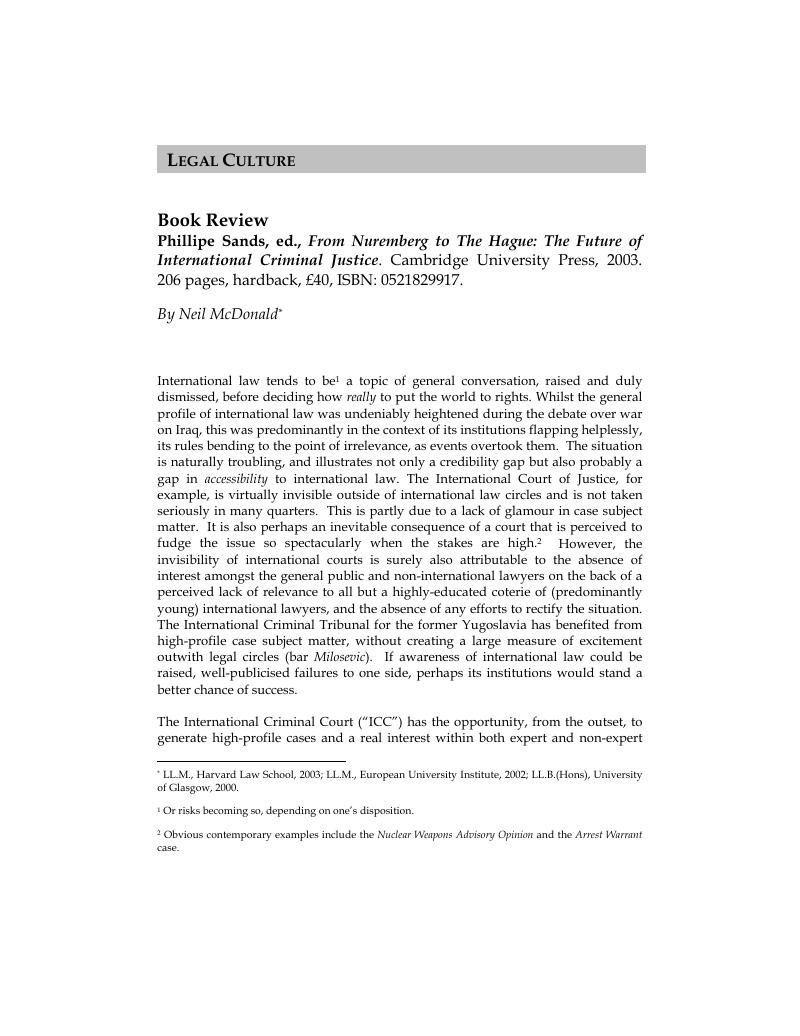No CrossRef data available.
Published online by Cambridge University Press: 06 March 2019

1 Or risks becoming so, depending on one's disposition.Google Scholar
2 Obvious contemporary examples include the Nuclear Weapons Advisory Opinion and the Arrest Warrant case.Google Scholar
3 See e.g. Bassiouni, Cherif, Introduction to International Criminal Law (Transnational, 2002); Antonio Cassese, International Criminal Law (Oxford University Press, 2003).Google Scholar
4 For a similar type of publication, see Geoffrey Robertson, Crimes Against Humanity: The Struggle for Global Justice (New Press, 2000).Google Scholar
5 Overy, Richard, ‘The Nuremberg Trials: International Law in the Making', in From Nuremberg to The Hague, at 4.Google Scholar
6 Sands, Philippe, ‘After Pinochet: the Role of National Courts', in From Nuremberg to The Hague, at 97-103. The Pinochet judgment before the UK House of Lords held inter alia that a former Chilean head of state could not claim immunity from jurisdiction in an extradition proceeding. The court found that the crime charged, namely torture, did not allow a claim of head of state immunity under international law, and further noted that some crimes are so serious as to permit exercise of jurisdiction by any state. The Arrest Warrant case was a successful application by the Congo to the ICJ, requiring that Belgium annul an arrest warrant, served in absentia under its ‘universal jurisdiction’ law, accusing the then serving Foreign Minister of the Congo of grave breaches of the laws of war.Google Scholar
7 Booth, Cherie, ‘Prospects and Issues for the International Criminal Court: lessons from Yugoslavia and Rwanda', in From Nuremberg to The Hague, at 182.Google Scholar
8 Although Booth does imply that the ICC will not be truly “international” without the participation of the U.S.Google Scholar